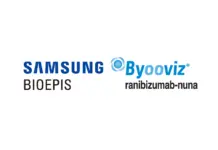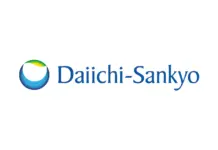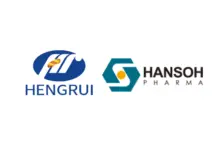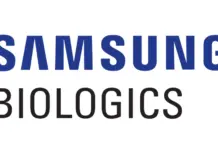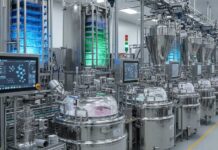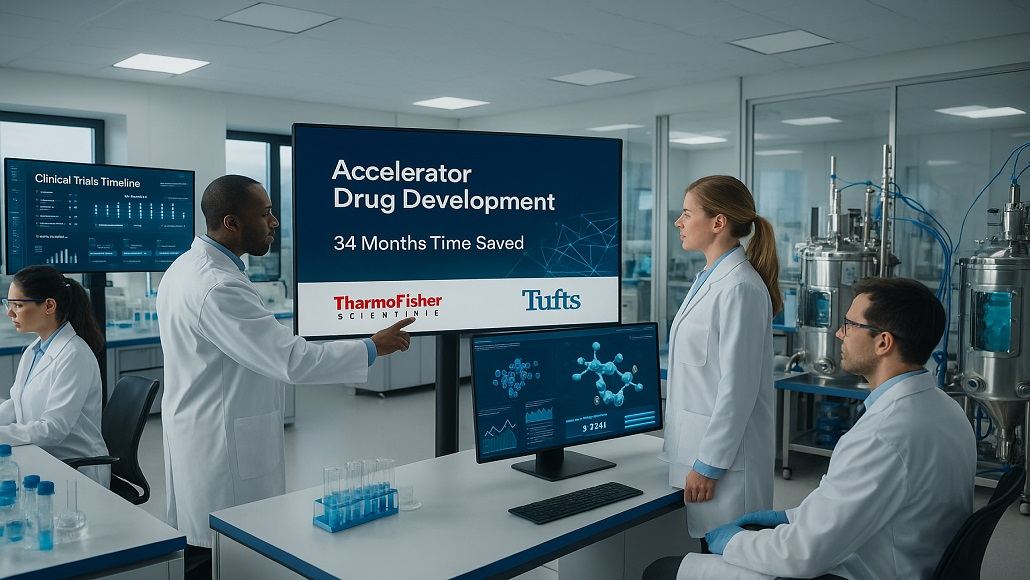Thermo Fisher Scientific Inc., which happens to be the world leader in serving science, on the 16th of June, 2025 announced the findings of its new research by the Tufts Center for the Study of Drug Development (CSDD), which demonstrates the benefits of the Accelerator drug development 360° CDMO and CRO solutions by the company when it comes to helping biotic as well as biopharma companies to speed up the life-changing medicine to patients.
The findings go on to show that Thermo Fisher’s integrated services can potentially decrease the drug development timelines by almost 3 years, thereby representing prominent time savings on the average 10 to 15 years that it takes in order to commercialize any new drug.
It is well to be noted that streamlining the drug development process is indeed critical for biotech as well as biopharma companies, which are facing very high development expenditures, regulatory intricacies, and immediate requirements to bring safe as well as new medicines to the market, and that too in a more rapid way. Traditionally, the drug developers have depended on multiple supply partners when it comes to bioprocessing, clinical supply, clinical development, and manufacturing solutions, but this decentralized approach happens to lead to inefficiency, deferment, and even miscommunication. Every month of delay in a phase 3 clinical trial can actually result in almost $8 million of lost revenue, thereby resulting in a shortened market exclusivity as well as deferred market entry.
Apparently, the Tufts CSDD study goes on to demonstrate that working with integrated partners so as to provide contact development and manufacturing organizations (CDMO) along with clinical research organizations (CRO) solutions can help speed up as well as streamline the intricate journey of drug development.
It is well to be noted that Accelerator drug development offers a customizable suite of manufacturing, clinical research, and also clinical supply chain services at each and every stage of development. To date, over 120 biotech and biopharma companies have worked with Thermo Fisher throughout its integrated CDMO as well as CRO solutions on over 350 protocols throughout therapeutic areas, large molecules, advanced therapies, as well as small molecules.
“This new study highlights the opportunity to deliver safe new medicines to patients significantly faster,” said Mike Shafer, executive vice president and president, Biopharma Services, Thermo Fisher Scientific. “Through Accelerator Drug Development, we are well positioned to bring customizable, end-to-end solutions and world-leading expertise to our customers, and we’re proud of the capabilities we’ve built to meet customer and patient needs.”
The Tufts CSDD study went on to report that making use of integrated services from phase 1 through phase 3 can decrease drug development time by almost 34 months. The researchers also went on to find out that the integrated CRO as well as CDMO services can generate almost $63 million when it comes to net financial advantages for drug sponsors, which is a return on investment of anywhere around 113 times the initial investment. By way of considering multiple scenarios throughout phases of the drug development as well as different levels of investment within integrated services, the researchers have found demonstrable time savings as well as ROI across the board, thereby reflecting the advantages of integration like cross-functional program coordination, oversight, partnership, and even planning and communication.
This study, as per the authors, goes on to demonstrate that integration of services throughout development as well as manufacturing functions can give substantial advantages to drug sponsors in the form of shorter clinical development timelines. The findings from the study offer a compelling case for the drug sponsors in order to consider single-vendor integrated CDMO as well as CRO solutions as the means of addressing certain functional inefficiencies.
The study’s lead author, Joseph DiMasi, Ph.D., director of economic analysis and research associate professor, Tufts University, said, “The cost of developing new drugs is exacerbated by operational inefficiencies from the siloing of clinical research, drug manufacturing and supply chain functions. Our findings underscore the strategic importance of integrated services as a driver of value. Drug sponsors considering this approach should consider the degree of integration that would drive the most value for their programs. Our study reveals that while fully integrated service provision yields the greatest financial benefit, even partial integration offers significant value, especially for the later phases of clinical development.”










